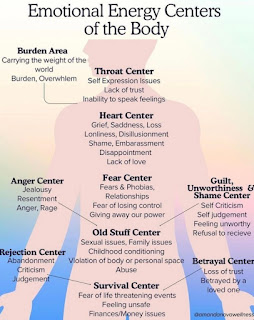Hello, Warrior Family!
Today, I want to
share something truly transformative: the power of journaling to heal
our subconscious minds.
Understanding
Trauma
Trauma refers to the emotional and psychological
response to distressing or harmful experiences, which can vary widely
from person to person. It can stem from a single event, such as an
accident or assault, or from ongoing situations, like abuse or
neglect. Trauma can affect one’s mental, emotional, and physical
well-being, often leading to feelings of fear, helplessness, or
disconnection. It may manifest as anxiety, depression, or PTSD,
impacting how individuals perceive themselves and the world around
them. Understanding trauma is crucial, as it lays the foundation for
healing and recovery, allowing us to explore effective coping
mechanisms like journaling.
Let’s dive into some journaling styles that can help
you on your healing journey:
1. Reflective Journaling
• Purpose:
Reflect on your daily experiences and emotions.
• Prompt: “What
emotions did I feel today, and what triggered them?”
• Action:
Write freely about your day, focusing on the feelings linked to
specific events.
2. Gratitude Journaling
• Purpose: Shift
your focus from trauma to positivity.
• Prompt: “What are
three things I am grateful for today?”
• Action: List and
elaborate on the positive aspects of your day, no matter how small.
3. Cognitive
Restructuring
• Purpose: Challenge negative thoughts.
•
Prompt: “What negative thought did I have today? What evidence
supports or contradicts it?”
• Action: Identify a distressing
thought and critically analyse it.
4. Expressive Writing
•
Purpose: Release pent-up emotions related to trauma.
• Prompt:
“What story does my trauma tell, and how has it affected my
life?”
• Action: Write continuously for 15-20 minutes about
your feelings without worrying about grammar.
5. Future Self
Journaling
• Purpose: Visualize your healing and recovery.
•
Prompt: “What does my life look like one year from now after
healing from trauma?”
• Action: Write about your goals and the
steps you’ll take to achieve them.
CBT Techniques for
Journaling
Now let’s sprinkle in some CBT techniques to
enhance your journaling practice:
1. Thought Records
•
Identify troubling thoughts and the emotions tied to them.
• Format:
•
Situation: What happened?
• Thought: What was I thinking?
•
Emotion: How did I feel?
• Alternative Thought: What is a more
balanced perspective?
2. Behavioral
Experiments
• Write about a situation you want to face and plan
a small step to confront it.
• Prompt: “What is one small step
I can take this week to confront my fear of [specific situation]?”
3. Affirmations
•
Create a list of positive affirmations to counter negative
self-talk.
• Prompt: “What are three affirmations I can remind
myself of during difficult moments?”
Additional Healing
Techniques
To complement your journaling, consider these
practices:
• Trauma Narrative: Write a detailed account of
your traumatic experiences.
• Letter Writing: Write letters to
people involved in your trauma to process your feelings.
• Daily
Reflections: Track your emotions and triggers in a daily journal.
•
Stream of Consciousness: Allow your thoughts to flow freely to
uncover deeper feelings.
Meditation and Mindfulness
Don’t forget the power of mindfulness in your journey:
• Guided Meditations: Use meditations focused on healing to access deeper emotions.
• Mindfulness Practice: Stay present and observe your thoughts without judgment.
• Visualization: Imagine healing energy flowing through your body.
Lifestyle Changes for Healing
Incorporate these healthy habits into your life:
• Prioritize balanced nutrition, regular exercise, and sufficient sleep.
• Limit exposure to negative media to create a more uplifting environment.
Questions for Reflection
As you journal,
these questions might help deepen your understanding:
• What
specific trauma am I struggling with, and how does it affect my daily
life?
• How have I coped with this trauma, both positively and
negatively?
• What support systems do I have, and how can I
enhance them?
Conclusion
Journaling is more than just
writing; it’s a profound process that helps you confront and heal
from trauma. By integrating these techniques and styles into your
practice, you can better understand your thoughts and feelings,
challenge negative patterns and pave the way for recovery.
Remember,
healing is a journey, not a destination. Embrace the process and
allow your journal to become a safe space for your growth and
self-discovery.
We’ve got this fam!! ![]()
Thank you for being here :) Please Share, like and follow if you resonate.
This article is offered under Creative Commons license. It’s okay to republish it anywhere as long as attribution bio is included and all links remain intact.
------------------------------------------------------------------------
 Andriana is the founder of Conscious Alignment & Co-Creator at Team Light Cyprus.
Andriana is the founder of Conscious Alignment & Co-Creator at Team Light Cyprus.
Her purpose and passion is giving people the tools, guidance & inspiration for creating an empowered version of self in all aspects of life. She is dedicated into assisting, healing & activating people by sharing her gifts through authenticity, simplicity & spiritual mastery Find out more at ww.consciousalignment.co.uk





No comments:
Post a Comment